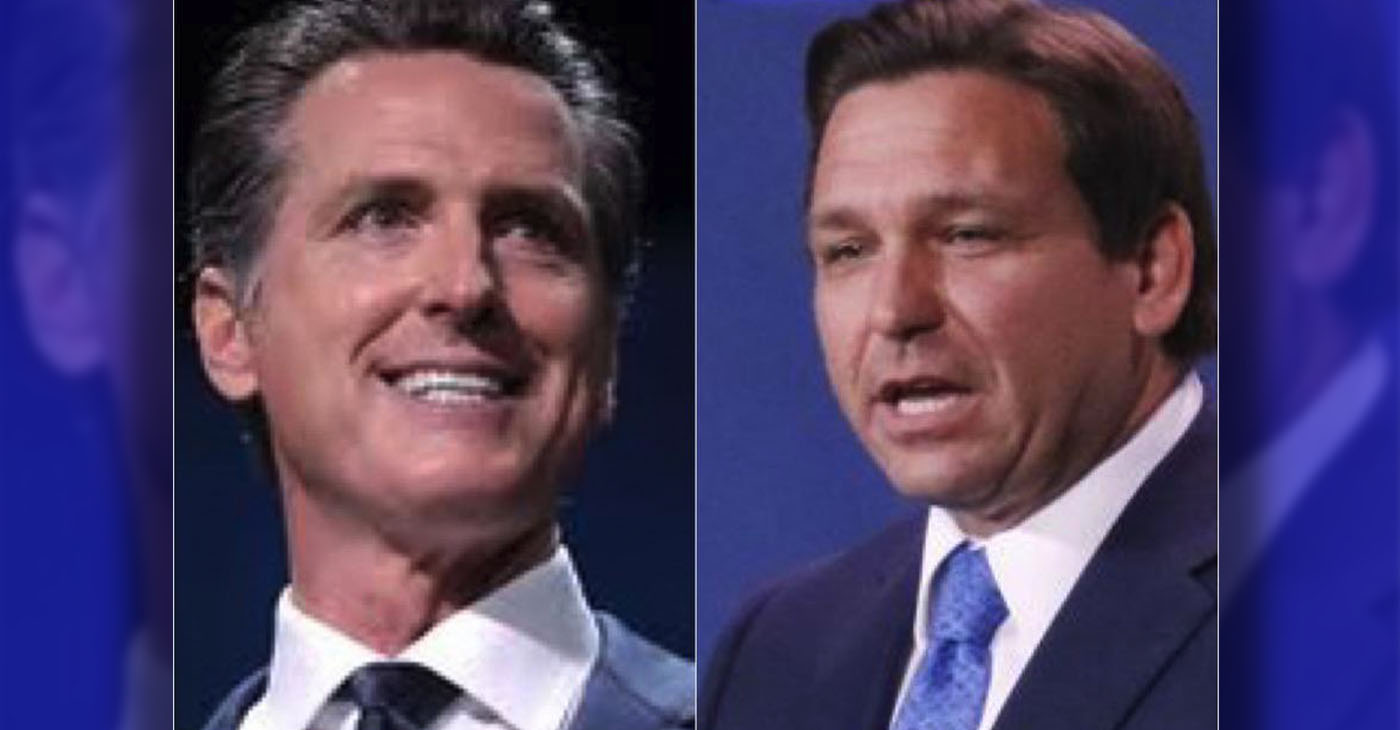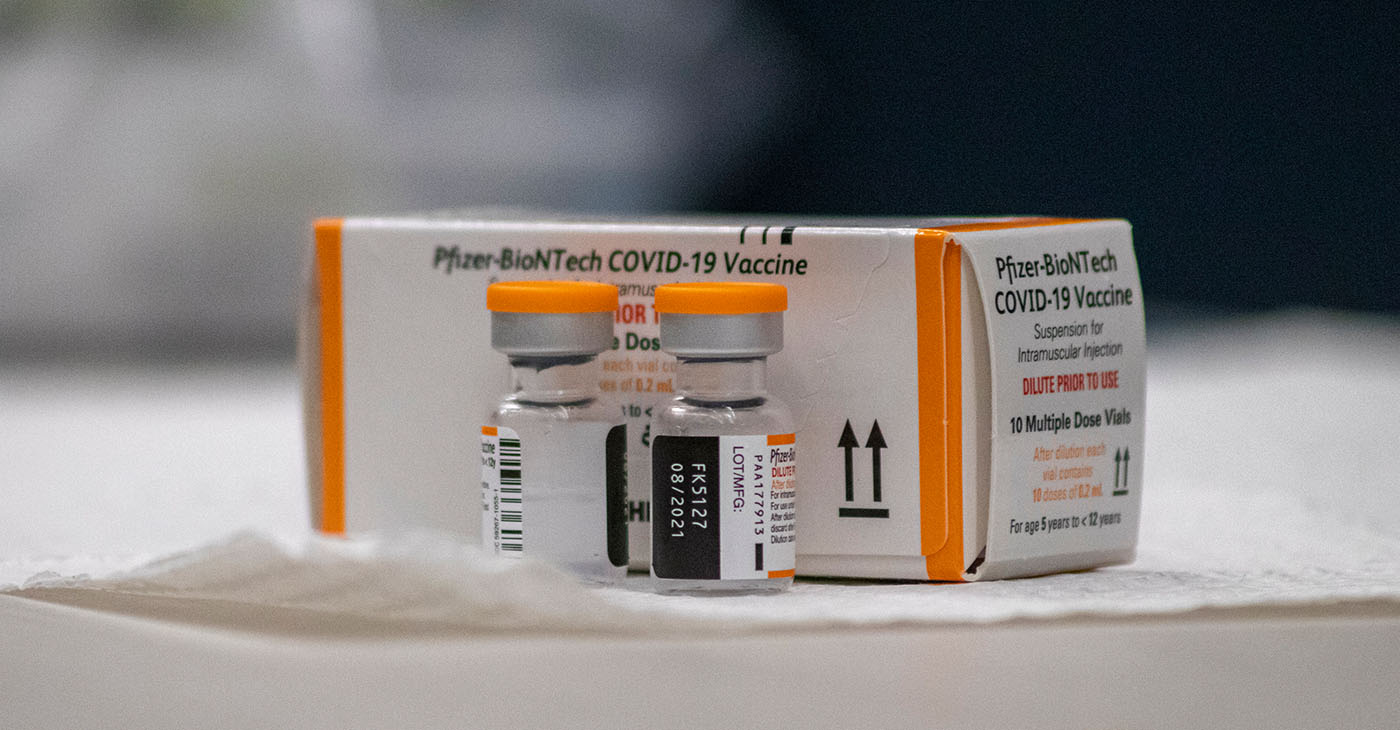Coronavirus
Your Student Loans Are Paused– But Not Yet Pardoned
“Too many Americans are struggling to pay for basic necessities and to provide for their families. They should not be forced to choose between paying their student loans and putting food on the table,” said the Dept. of Education in a short statement.

On January 20, at the request of Pres. Joe Biden, the U.S. Department of Education announced that it would extend the federal student loan payment moratorium, suspending payments on student loans through Sept. 30, 2021. The interest rates on these loans will also stay at 0% until then.
Federal student loan payments have been suspended since March 2020 as part of the federal government’s economic response to the COVID-19 pandemic. The moratorium extension came on the day of Biden’s inauguration, and less than two weeks before the previous pause on payments was set to expire on January 31. The request to extend the moratorium was one of 17 executive actions Biden signed on his first day in office. An estimated 41 million Americans will benefit from the extended pause on payments.
“Too many Americans are struggling to pay for basic necessities and to provide for their families. They should not be forced to choose between paying their student loans and putting food on the table,” said the Dept. of Education in a short statement.
In addition to the pause on payments, collections on defaulted, federally held loans will continue to be halted, and all borrowers with defaulted federal loans whose wages are being garnished will receive a refund. Also, each month until September 30 will still count toward public service loan forgiveness for borrowers in public-service jobs, as well as the federal student loan rehabilitation program, which erases a default from a person’s credit report after nine consecutive payments.
As for the question of cancelling student debt, which has been a topic throughout Biden’s campaign, the Biden administration had yet to take any official action as of January 24. On a January 19 call with reporters, incoming Director of the National Economic Council Brian Deese said that the Biden administration supports forgiving up to $10,000 in student loan debt per person through congressional action.
Federal student loan debt has been a looming concern for families for a while now — even before the pandemic began. The total amount some 40 million American student loan borrowers owe has reached nearly $1.6 trillion. According to the Federal Reserve, the average borrower owes over $32,700 in student debt and the average monthly student loan payment is $393.
Some liberal lawmakers and debt cancellation advocates have called for Biden to cancel student debt through executive action. In a letter first sent last November that was updated January 15, more than 325 nonprofit and community organizations called on Biden and Vice President Kamala Harris to cancel all federal student debt on the first day of their administration.
The letter argued that “cancelling student debt would stimulate the economy, help reduce racial wealth gaps, and could have a positive impact on health outcomes.” The organizations who signed the letter included the NAACP, National Action Network, Hispanic Federation and the Faith in Action National Network.
“Before COVID-19 … student debt was already a drag on the national economy, weighing heaviest on Black and Latinx communities, as well as women,” the organizations wrote.
“That weight is likely to be exponentially magnified given the disproportionate toll that COVID-19 is taking on both the health and economic security of people of color and women. To minimize the harm to the next generation and help narrow the racial and gender wealth gaps, bold and immediate action is needed.”
Research has shown that student loan debt is a large contributor to the racial wealth gap, and it hinders economic progress for Black communities. According to a 2019 report by the Century Foundation, the Roosevelt Institute and Demos, Black families, who typically have less generational wealth than white families, rely more heavily on student debt and use riskier forms of student debt than white families.
The report also found that Black students are far more likely to experience negative financial events including loan default, higher interest rate payments and higher graduate school debt balances after graduating. According to a 2016 Brookings Institution report, Black college graduates owe $7,400 more on average than their white peers immediately after graduation, and over the four years after graduation, the Black-white debt trap grows to $25,000.
Student loan debt cancellation is a divisive issue, with conservatives historically opposing cancellation. It is expected that any congressional action taken toward debt cancellation will be met with opposition from Republicans.
With the election of Georgia senators Raphael Warnock and Jon Ossoff, Democrats now have slim majorities in the House and Senate, and the cancellation of at least a small amount of student loan debt looks possible.
California Black Media
Gov. Newsom and Gov. DeSantis Go Head-to-Head in Nationally Televised Debate
Conservative Fox News personality Sean Hannity moderated the duel, during which the TV pundit, more than once, injected his opinion, and appeared to be providing subtle assists to DeSantis. As the debate progressed, it was clear that opinions about each topic discussed was representative of the philosophical and political chasm that divides liberal and conservative America, and a preview of campaign mudslinging that is bound to intensify as the 2024 presidential campaign ensues.

By California Black Media
In an intense, 95-minute-plus televised faceoff between California Gov. Gavin Newsom and Florida Gov. Ron DeSantis on Nov. 30, the men traded jabs and putdowns, defended their respective gubernatorial records, disagreed sharply on how to solve the country’s most pressing problems, and expressed clashing views on the performance of the Biden-Harris administration.
Conservative Fox News personality Sean Hannity moderated the duel, during which the TV pundit, more than once, injected his opinion, and appeared to be providing subtle assists to DeSantis.
As the debate progressed, it was clear that opinions about each topic discussed was representative of the philosophical and political chasm that divides liberal and conservative America, and a preview of campaign mudslinging that is bound to intensify as the 2024 presidential campaign ensues.
“I’ll tell you why I’m here,” Newsom said. “I’m here to tell the truth about the Biden-Harris record and also compare and contrast Ron DeSantis’ record and the Republican Party’s record” with that of California.
DeSantis blasted Newsom’s management of the COVID-19 crisis and criticized Newsom for prevalent crime, homelessness and deteriorating social conditions in California cities.
“You have the freedom to defecate in public in California,” DeSantis said. “You have the freedom to pitch a tent on Sunset Boulevard. You have the freedom to create a homeless encampment under a freeway and even light it on fire. They’re not the freedoms our founding fathers envisioned.”
Newsom took a jab at DeSantis’ presidential candidacy, predicting that the Florida Governor would be endorsing GOP frontrunner Donald Trump soon.
“There’s one thing we have in common,” Newsom said. “Neither of us will be the nominee for our party in 2024.
BayCityNews
FDA Updates Approval of Pfizer Booster Vaccine for Children Under 5
The U.S. Food and Drug Administration updated its approval Tuesday of the Pfizer-BioNTech booster vaccine, making it available to some children under age 5. Before this update, children under 5 were not eligible for COVID-19 booster shots. Instead, they received three doses of the regular vaccine.

By Eli Walsh
Bay City News
The U.S. Food and Drug Administration updated its approval Tuesday of the Pfizer-BioNTech booster vaccine, making it available to some children under age 5.
Before this update, children under 5 were not eligible for COVID-19 booster shots. Instead, they received three doses of the regular vaccine.
As of December 2022, children age 4 and younger who have not been vaccinated receive the omicron variant-specific booster vaccine as the third dose in their primary vaccine series, following two doses of the original Pfizer vaccine.
However, children in that age range who completed their initial vaccination series before December 2022 only received three doses of the original Pfizer vaccine, and are less protected against more infectious variants of the virus as a result.
FDA officials updated the vaccine’s emergency use authorization Tuesday to allow those children who only received the original Pfizer COVID vaccine to receive one dose of the bivalent booster if it has been at least two months since they completed their initial series.
Other children under age 5 are not eligible for the booster, although everyone age 5 and up is eligible for a booster.
“Currently available data show that vaccination remains the best defense against severe disease, hospitalization and death caused by COVID-19 across all age groups, and we encourage all eligible individuals to make sure that their vaccinations are up to date with a bivalent COVID-19 vaccine,” said Dr. Peter Marks, the director of the FDA’s Center for Biologics Evaluation and Research.
Clinical data has found that both the original Pfizer vaccine and the booster vaccine that targets the omicron subvariants BA.4 and BA.5 are safe for everyone aged 6 months and up and effective at preventing the worst outcomes of COVID infection, including serious illness and death.
COVID vaccines are available at primary care providers, retail pharmacies and some facilities operated by local health departments.
Copyright © 2023 Bay City News, Inc. All rights reserved. Republication, rebroadcast or redistribution without the express written consent of Bay City News, Inc. is prohibited. Bay City News is a 24/7 news service covering the greater Bay Area.
Bay Area
COVID-19 Response Grant Program
The City of Union City will be issuing another round of its COVID-19 Response Grant Program. The program has distributed approximately $620,000 in grant funds and forgivable loans to the community to respond to the impacts of COVID-19 and will distribute another $322,000 through this latest round of funding. The City will utilize federal Community Development Block Grant (CDBG) and CARES Act funds.

The City of Union City will be issuing another round of its COVID-19 Response Grant Program. The program has distributed approximately $620,000 in grant funds and forgivable loans to the community to respond to the impacts of COVID-19 and will distribute another $322,000 through this latest round of funding. The City will utilize federal Community Development Block Grant (CDBG) and CARES Act funds.
Grants are available through the City’s Road to Recovery Small Business Assistance Program and the Residential Rental Assistance Program. The City began accepting applications on March 6, 2023, at 9 a.m. and will begin reviewing applications (up to 50 applications for each grant opportunity) submitted on or before March 30, 2023, at 5 p.m. The program information and the online application are available on the City’s website:
https://www.unioncity.org/548/COVID-19-Response-Grant-Program
The City will be holding two informational/technical assistance meetings to support residents and businesses with their applications and respond to any questions. These meetings will be streamed via Zoom. See below for meeting information and Zoom meeting links.
Tuesday, March 14, 2023: 9 a.m. to 10 a.m.
https://unioncity-org.zoom.us/j/89061570160
Wednesday, March 15, 2023: 12 p.m. to 1 p.m.
-

 Activism4 weeks ago
Activism4 weeks agoOakland Post: Week of March 27 – April 2, 2024
-

 #NNPA BlackPress4 weeks ago
#NNPA BlackPress4 weeks agoCOMMENTARY: D.C. Crime Bill Fails to Address Root Causes of Violence and Incarceration
-

 #NNPA BlackPress4 weeks ago
#NNPA BlackPress4 weeks agoMayor, City Council President React to May 31 Closing of Birmingham-Southern College
-

 #NNPA BlackPress4 weeks ago
#NNPA BlackPress4 weeks agoBeloved Actor and Activist Louis Cameron Gossett Jr. Dies at 87
-

 Community1 week ago
Community1 week agoFinancial Assistance Bill for Descendants of Enslaved Persons to Help Them Purchase, Own, or Maintain a Home
-

 Activism3 weeks ago
Activism3 weeks agoOakland Post: Week of April 3 – 6, 2024
-

 Business1 week ago
Business1 week agoV.P. Kamala Harris: Americans With Criminal Records Will Soon Be Eligible for SBA Loans
-

 Activism2 weeks ago
Activism2 weeks agoOakland Post: Week of April 10 – 16, 2024























































